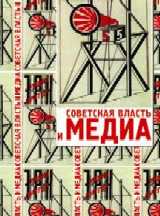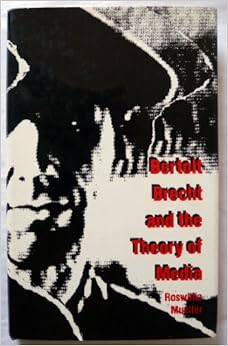Hans Günther, Sabine Hänsgen (eds.): Soviet Power and the Media (2006) [Russian]
Filed under book | Tags: · 1920s, 1930s, cinema, communism, film, media, media theory, photography, politics, print, radio, socialist realism, sound, soviet union, technology, theatre

Proceedings from the conference “The Political as Communicative Space in History” (Bielefeld, October 2003) devoted to the comparative analysis of the media in the Soviet Union of the 1920s and 1930s provide a pioneering media-theoretical exploration of the role of radio, film, photography and print in the engineering of the communist Soviet power.
Sovetskaya vlast’ i media [Советская власть и медиа]
Publisher Akademicheskiy proekt, St. Petersburg, 2006
Open Access
ISBN 5733103353, 9785733103358
621 pages
Reviews: Wolfgang Schlott (Die Welt der Slaven, 2007, DE, PDF), Alexander Prokhorov (Studies in Russian and Soviet Cinema, 2007), Alexander Ulanov (Novoe literaturnoe obozrenie, 2007, RU), Jana Klenhova (ArtMargins, 2008), Yuliya Liderman (Usloviya teatra, RU, 2010).
PDF (broken link fixed on 2014-1-28)
PDFs
Matthew Fuller, Andrew Goffey: Evil Media (2012)
Filed under book | Tags: · algorithm, art, artificial intelligence, business, code, computing, data, database, event, governance, information, interaction, interface, knowledge, labour, language, machine, management, market, media, media theory, memory, military, networks, philosophy, political theory, politics, power, programming, software

“Evil Media develops a philosophy of media power that extends the concept of media beyond its tried and trusted use in the games of meaning, symbolism, and truth. It addresses the gray zones in which media exist as corporate work systems, algorithms and data structures, twenty-first century self-improvement manuals, and pharmaceutical techniques. Evil Media invites the reader to explore and understand the abstract infrastructure of the present day. From search engines to flirting strategies, from the value of institutional stupidity to the malicious minutiae of databases, this book shows how the devil is in the details.
The title takes the imperative “Don’t be evil” and asks, what would be done any differently in contemporary computational and networked media were that maxim reversed.
Media here are about much more and much less than symbols, stories, information, or communication: media do things. They incite and provoke, twist and bend, leak and manage. In a series of provocative stratagems designed to be used, Evil Media sets its reader an ethical challenge: either remain a transparent intermediary in the networks and chains of communicative power or become oneself an active, transformative medium.”
Publisher MIT Press, 2012
ISBN 0262304406, 9780262304405
235 pages
Review: Nicholas Holm (Media Int’l AU, 2013), Neural (2013).
Evil media on Monoskop wiki
PDF (updated on 2024-4-13)
HTML (added on 2015-8-28)
See also YoHa, et al., Evil Media Distribution Centre, 2013.
Comments (2)Roswitha Mueller: Bertolt Brecht and the Theory of Media (1989)
Filed under book | Tags: · aesthetics, cinema, film, film theory, media, media theory, opera, politics, radio, theatre

Bertolt Brecht spent a career puncturing artistic illusion while casting a spell as an innovator that has continued since his death in 1956. Best known to theater goers for “The Threepenny Opera,” “Mother Courage and her Children,” “The Caucasian Chalk Circle” and other production, the great playwright was, in fact, a man of all media. He was interested in radio and the cinema as soon as they appeared in Europe and brought to them, as well as to the stage, a dramatic theory so radical and influential that it has come to be known by the adjective “Brechtian.”
Publisher University of Nebraska Press, Lincoln & London, 1989
Modern German Culture and Literature series
ISBN 0803231326, 9780803231320
149 pages
Reviews: Katie Trumpener, Susan Bennett (Theatre Research International).
PDF (no OCR)
Comment (0)
